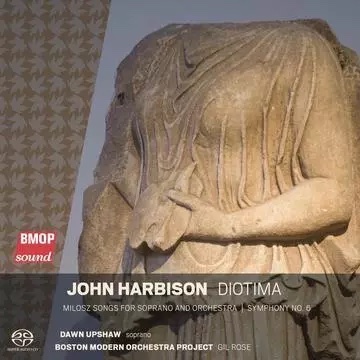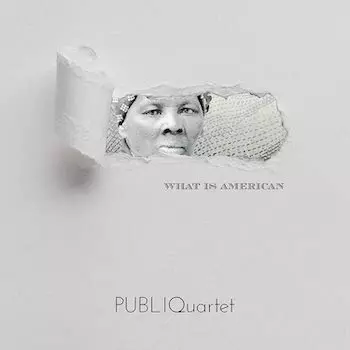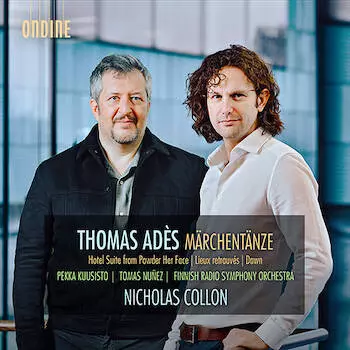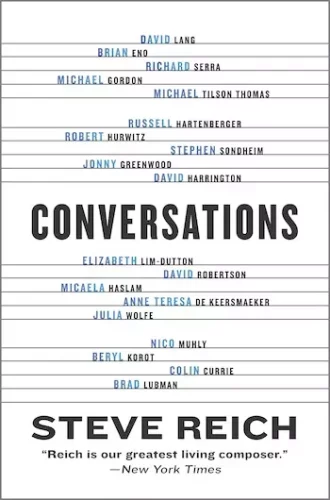Classical Music Commentary: Top Classical Performances and Recordings of 2022
By Jonathan Blumhofer
What a great year 2022 was for classical music recordings: the canon, new music, neglected music — all of it was well represented and from all comers. Of special note these last months has been the rise of a new generation of artists, many (like Igor Levit and Lahav Shani) in their 30s, who left a conspicuous imprint on the discography of the year and, one expects, will continue to shape the art-form moving forward.
Below are my favorite recordings that I reviewed for the Fuse, plus, for balance, a couple of disappointments. It’s by no means comprehensive but gives some sense of the breadth of what’s being recorded these days. Suffice it to say, in this department at least, we’ve got it good.
Top 10 Recordings of 2022

BMOP plays Harbison (BMOP/Sound)
While the Boston Modern Orchestra Project belatedly marked its 25th season this year, the ensemble’s record label continued its push toward 100 releases. John Harbison is a staple of their repertoire and discography, and this collection of pieces from the early and later parts of the composer’s career played to everybody’s strengths. It was especially wonderful to hear soprano Dawn Upshaw again: she’s hardly lost a step and sings Harbison’s Milosz Songs radiantly.
Florence Price may get headlines for her orchestral works, but her efforts as a composer of chamber music are, generally, more satisfying. That’s very much the case in this collection of pieces for strings and piano that’s brilliantly played by the Catalyst Quartet and pianist Michelle Cann. (Cann was also featured on an excellent — and Grammy-nominated — album celebrating Black women composers with the New York Youth Symphony.)
Pianist Igor Levit doesn’t do anything by half-measures, as his absorbing release — which combines Ronald Stevenson’s 90-minute-long Passacaglia on DSCH and Dmitri Shostakovich’s 24 Preludes & Fugues — attests. An epic undertaking it is, but a thoroughly rewarding one, both on a musical level and an expressive one.
Bolcom, Complete Rags (Hyperion)
Few composers have straddled the worlds of concert music and popular music with as much seeming ease as William Bolcom. Accordingly, this collection of 27 rags written over the last half-century is anything but a collection of pastiches. Rather, there’s much to dig into here, as Marc-André Hamelin’s magnificent no-holds-barred playing demonstrates.
Weill & Shostakovich, Symphonies (Warner Classics)
That Kurt Weill’s only Symphony has remained out of the limelight for so long is puzzling, especially given the dazzlingly intense reading Lahav Shani draws from the Rotterdam Philharmonic. He’s no less impressive an advocate for Shostakovich’s Symphony No. 5, which, of course, is the Weill’s polar opposite in terms of reputation. Either way, this album mixes terrific programing and fervent playing with a vengeance.

What Is American? (Bright Shiny Things)
Antonin Dvorak’s admonition for American composers to draw on Black vernacular musical forms has gotten fresh attention of late (thanks, in part, to Joseph Horowitz’s 2021 book on the subject). It’s certainly been discussed in concert booklets over the years, but few musical programs actually deliver so revealingly as this disc from the PUBLIQuartet, which blends arrangements of songs, original compositions, and, most provocatively, a brilliant improvisation on Dvorak’s evergreen “American” String Quartet.
Mahler, Symphony No. 4 (Harmonia mundi)
François-Xavier Roth isn’t, maybe, one’s first idea of a Mahler conductor. But the period-performance guru has the number of that composer’s Fourth Symphony, which emerges in this recording by his orchestra, Les Siècles, in an utterly fresh and revealing light.
Scenes from Tin-Can Alley (Blue Griffin Records)
This was the other invigorating Florence Price disc to come my way. An inviting collection of keyboard miniatures played with verve by Josh Tatsuo Cullen, the music entirely avoids formal stiffness. What we’ve got instead is an ingratiating “way in” to the composer at her most accessible and winning.
Upon Further Reflection (Avie)
Another of the year’s excellent piano albums is this one from John Wilson. Built around Michael Tilson Thomas’s Upon Further Reflection, the disc celebrates both that composer and his influences (including Earl Wild, Gershwin, Copland) as well as the larger story of 20th-century American music (in which, of course, MTT figured prominently).
John Adams’s 75th birthday last February passed without a whimper in New England (which is unfortunate, given that he was born in Worcester, grew up in New Hampshire, and subbed with the Boston Symphony while attending Harvard). No matter: Paavo Järvi and the Tonhalle-Orchester Zürich picked up some of the slack with this excellent, thoroughly lived-in survey of some of Adams’s orchestral works written between 1986 and 2003.
And five more (good and less so)…

Thomas Adès never fails to surprise. This collection of pieces for orchestra with and without soloists was charming, haunting, and devastatingly well-played by the Finnish Radio Symphony Orchestra and Thomas Collon.
Beethoven Complete String Quartets, Vol. 2 (Cedille)
It’s never bad to start a year with a new traversal of Beethoven’s string quartets (or some of them) that make a resounding case for themselves. This second installment from the Dover Quartet’s ongoing cycle (the concluding third volume is just out, and just as good) did precisely that: captivating from start to finish.
Sibelius, Complete Symphonies (Decca)
One shouldn’t be surprised that a 20-something conductor hasn’t grasped the full measure of all seven of Jean Sibelius’s symphonies. What makes Klaus Mäkelä’s set (paired with the tone poem Tapiola) so striking is that when he gets things right (say in the Second and Fourth Symphonies) the interpretations are second-to-none. Keep an eye on this guy: he’s going places.
Richard Strauss was no stranger to charges of self-indulgence (in the Symphonia domestica, after all, he used a gigantic orchestra to depict his son splashing in the bathtub). So, on that measure at least, Andris Nelsons’s new recording of many of the composer’s orchestral works with the Boston Symphony and Gewandhausorchester Leipzig hit a nail on the head. It’s just not one that’s valued by most. Ultimately, these performances, too many of which are bloated and drift aimlessly, hardly do justice to what, in the right hands, should be some awfully exciting music.
Dvorak, Symphonies Nos. 7-9 (Deutsche Grammophon)
Gustavo Dudamel is a terrific orchestra builder, as this album attests: the Los Angeles Philharmonic has hardly sounded more refined on disc or in-person than they do here. Interpretively, though, he’s idiosyncratic and the conductor’s mannerisms — particularly a propensity to micromanage the details of these three favorites to within a hair’s breadth of death – frustratingly undercut what should have been a satisfying and brilliant album.
Books

It can be easy to take Steve Reich for granted. After all, he’s been a presence — oftentimes a provocative one — in the new-music world for well over 50 years now and he remains as active as ever. Given Reich’s stature, this collection of discussions between the composer and various friends and collaborators could have just ended up an effort in self-congratulation and ego-boosting.
Instead, what we’ve got is a frequently insightful, sometimes funny, ever-candid, and occasionally touching examination of his career, techniques, and output. It’s a welcome installment in the composer’s bibliography and, along with the memoirs of Philip Glass and John Adams, a valuable addition to the history of the Minimalist generation.
Jan Swafford, Mozart: The Reign of Love
(Disclosure: I studied composition with the author in the mid-’00s at the Boston Conservatory.)
I’m a bit late to the party on this one, but only recently had the chance to finally sit down with Jan Swafford’s 2021 biography of Mozart. This is, even by the standard we’ve become accustomed to through his previous works (biographies of Charles Ives, Brahms, and Beethoven, chief among them), a masterpiece. The author smashes away whatever myths remain around the Austrian wunderkind: what emerges is a fully complex, contradictory, brilliant, zany, exasperating, funny man who’s also a roundly decent soul.
Swafford’s prose is clear, his narrative lively, and the assessments of the composer, the people surrounding him (including his much-maligned-of-late father, Leopold), and the music both perceptive and wise. For any seeking a Mozart bio with better balance (and less Freudian speculation) than Maynard Solomon’s and more encyclopedic than Peter Gay’s marvelous but pamphlet-sized one, look no further.
Jonathan Blumhofer is a composer and violist who has been active in the greater Boston area since 2004. His music has received numerous awards and been performed by various ensembles, including the American Composers Orchestra, Kiev Philharmonic, Camerata Chicago, Xanthos Ensemble, and Juventas New Music Group. Since receiving his doctorate from Boston University in 2010, Jon has taught at Clark University, Worcester Polytechnic Institute, and online for the University of Phoenix, in addition to writing music criticism for the Worcester Telegram & Gazette.
